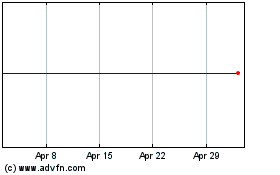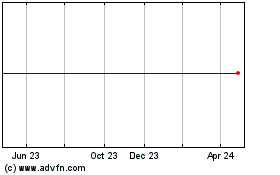By Maureen Farrell and Liz Hoffman
When Twitter Inc. was looking to raise $1 billion from investors
earlier this month, it put out the usual calls to Wall Street
banks.
The social-media company also called Vijay Culas, who works out
of rented office space on a busy stretch of highway in San Mateo,
Calif.
A former Goldman Sachs Group Inc. banker who hung out a shingle
in 2014, Mr. Culas helped Twitter negotiate with its banks and
ultimately sell a type of hybrid bond for a 1% fee, one of the
cheapest offerings in recent memory.
Mr. Culas is among a handful of upstart advisers who are
challenging investment banks on turf once thought impenetrable: the
$7 billion-a-year business of handling complex stock-related
transactions.
Jason Wood, who spent nine years at JPMorgan Chase & Co.,
went solo in 2013. A year later, Mr. Culas launched Matthews South,
named for his Harvard University dorm.
The accounting firm Ernst & Young LLP hired David Brown, an
ex- Barclays PLC banker, in 2015 to advise their clients on
capital-markets deals.
Without underwriting or trading arms, these advisers say they
can give unbiased judgment and help clients wrangle a horde of
hungry bankers. Their pitch is resonating, especially in Silicon
Valley, where finance departments tend to be less robust and more
suspicious of Wall Street.
All told, Messrs. Wood and Culas have worked on one-third of the
roughly 30 convertible bond sales by U.S.-listed tech companies
this year, including offerings by Square Inc., Etsy Inc. and Twilio
Inc., according to people familiar with the deals.
Their success is the latest sign that Wall Street's moat is
shallower than it used to be. Investment banks were once one-stop
shops, controlling each step of a big securities offering. Now they
look vulnerable to the same unbundling that has hit cable
television, challenged by a growing number of a la carte in-home
entertainment options.
Cheaper computing power and reams of market data allow solo
bankers to compete with big banks. Mr. Wood, who works out of his
Bay Area house, and Mr. Culas have about a dozen employees between
them.
The two men want the high-touch business of advising on deals,
leaving to big banks the laborious, risky task of executing them.
They arm clients with data about comparable transactions and often
run auctions to solicit banks' lowest bids.
"It's changing the dynamics of the transaction completely," said
Thad Trent, the chief financial officer of Cypress Semiconductor
Corp., a San Jose, Calif. chip maker that hired Mr. Culas's firm
last November for a deal. "It was the first time I felt like I had
a level playing field with the banks."
Convertible bonds account for a small slice of
investment-banking fees, which hit $38 billion last year, according
to Dealogic. These hybrid instruments pay regular coupons like a
bond, but in exchange for a lower interest rate -- at or near zero
these days -- investors can swap them for shares if the stock hits
a predetermined price.
It is the sort of business once thought to be out of reach for
startups, which lack balance sheets to underwrite securities and
investor networks to sell them to.
Bankers say their trading and lending operations enable them to
offer broader services and better market intelligence about how
deals will play out in the market. Privately, they have urged
lawyers and other advisers not to work with independent advisers or
risk losing business from their banks, according to people familiar
with the matter. They have warned clients that independent advisers
get hired by promising unrealistic terms that investors won't
swallow.
Bankers pointed to Alteryx Inc.'s recent sale of $200 million of
convertible bonds, when investors balked at aggressive terms
negotiated by Mr. Culas. JPMorgan and Goldman were forced to
discount the bonds, people familiar with the matter said, a chaotic
offering that sparked selloff in Alteryx's shares and further
reduced the value of the convertible bond.
"As a new issuer [of convertible bonds], we felt it would be
beneficial to seek independent guidance," a spokeswoman for Alteryx
said. "Shares reacted more negatively than expected but have since
recovered, and we were very happy with the advice we received."
Capital-markets bankers are already feeling pinched. Companies
are staying private longer, delaying the initial public offerings
that generate big underwriting fees for banks. Competition has
driven down fees on big trades and secondary offerings. Banks'
revenue from U.S. stock offerings and related deals has fallen 38%
since 2000, according to Dealogic.
A bright spot this year is convertible bonds like those sold by
Twitter. Seventy-six companies have sold $27 billion worth this
year, the most since 2008, according to Dealogic. More than half of
this volume comes from Silicon Valley and other tech companies
looking to capitalize on investor enthusiasm for their shares.
The instruments come in nearly infinite flavors, with different
coupons and conversion triggers. Historically, that complexity has
worked in favor of banks, which make money underwriting the bonds
and providing an accompanying derivative.
"The most important service we provide is information," said Mr.
Wood, who said clients often feel overwhelmed. "There are dozens of
decision points. We help educate them on the pros and cons."
Mr. Wood said he spent two years working with software company
RingCentral Inc. before it issued a $400 million convertible bond
in March -- paying 0% interest. He also advised Okta, Inc., Twilio
and Zendesk Inc. on recent offerings, while Mr. Culas worked for
Square and Etsy, among others.
Some banks are trying to get ahead of the trend. Goldman last
year launched an app, called Athena, that allows corporate
executives to design their own share repurchases. CFOs can
customize deals with their preferred features -- and, Goldman
hopes, call the bank to execute it.
Write to Maureen Farrell at maureen.farrell@wsj.com and Liz
Hoffman at liz.hoffman@wsj.com
(END) Dow Jones Newswires
June 25, 2018 07:14 ET (11:14 GMT)
Copyright (c) 2018 Dow Jones & Company, Inc.
Twitter (NYSE:TWTR)
Historical Stock Chart
From Mar 2024 to Apr 2024

Twitter (NYSE:TWTR)
Historical Stock Chart
From Apr 2023 to Apr 2024
